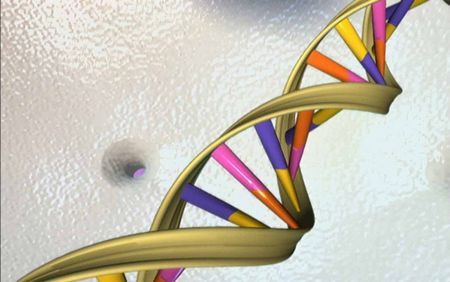|
|
双语研究:陌生人能认出“善良”基因(图) 陌生人能认出“善良”基因 陌生人能认出“善良”基因People with a certain gene trait are known to be more kind and caring than people without it, and strangers can quickly tell the difference, according to US research published on Monday. Scientists at Oregon State University devised an experiment in which 23 couples, whose genotypes were known to researchers but not observers, were filmed. One member of the couple was asked to tell the other about a time of suffering in his or her life. Observers were asked to watch the listener for 20 seconds, with the sound turned off. In most cases, the observers were able to tell which of the listeners had the "kindness gene" and which ones did not, said the findings in the Proceedings of the National Academy of Sciences edition of November 14. "Our findings suggest even slight genetic variation may have tangible impact on people's behavior, and that these behavioral differences are quickly noticed by others," said lead author Aleksandr Kogan, a postdoctoral fellow at the University of Toronto. 据法新社11月15日报道,根据一项于周一公布的美国调查显示,众所周知拥有某种基因的人比其他人更为善良和富于同情心,而陌生人能立即分辨这类人的不同。 俄勒冈州立大学的科学家们为23对夫妻设计了一个录像实验。这些实验者的基因类型只有研究人员知道,而实验观察者并未掌握。 夫妻中的一方被要求和对方讲述自己生活中一段艰难经历,而观察者则被要求在消音的条件下观察聆听的一方20秒钟。 11月14日出版的美国国家科学院院刊公布了这一实验发现:在大多数的情况下,实验观察者能分辨出拥有“善良基因”的聆听者和没有这一基因的聆听者。 该研究论文的主要作者、多伦多大学的博士后研究员亚历山大-柯岗说:“我们的发现结果表明即使轻微的基因变异也可能会对个人的行为造成具体影响。而且这些行为上的偏差很快就能被其他人注意到。” 网友评论
|
||||||||||||||



